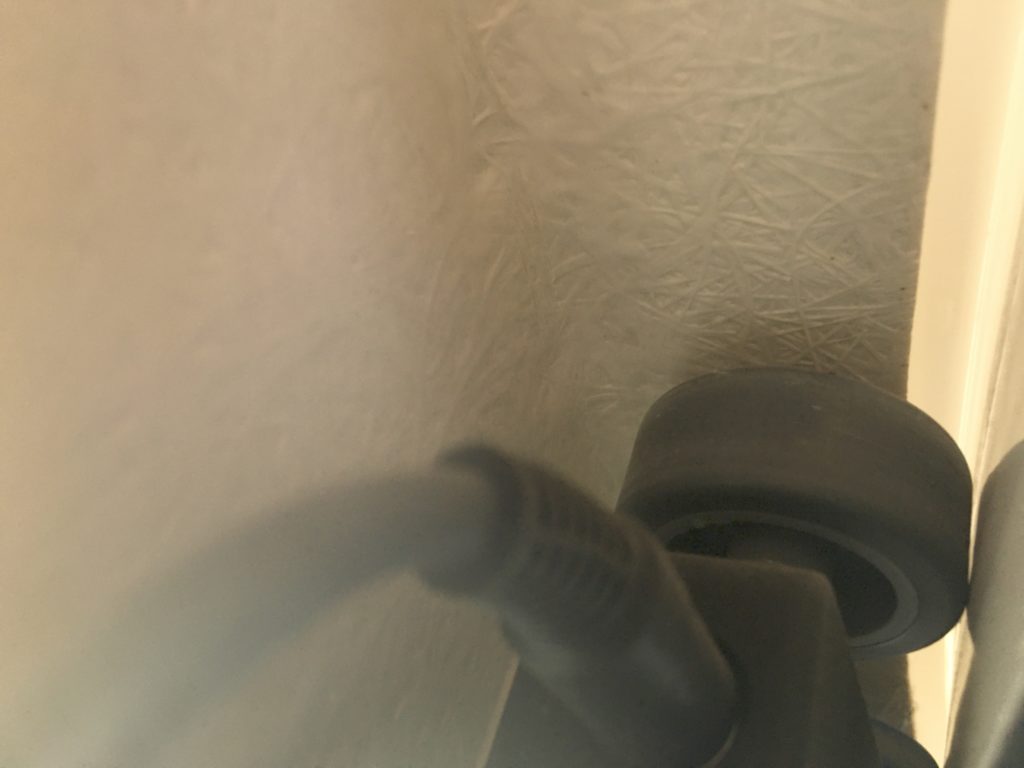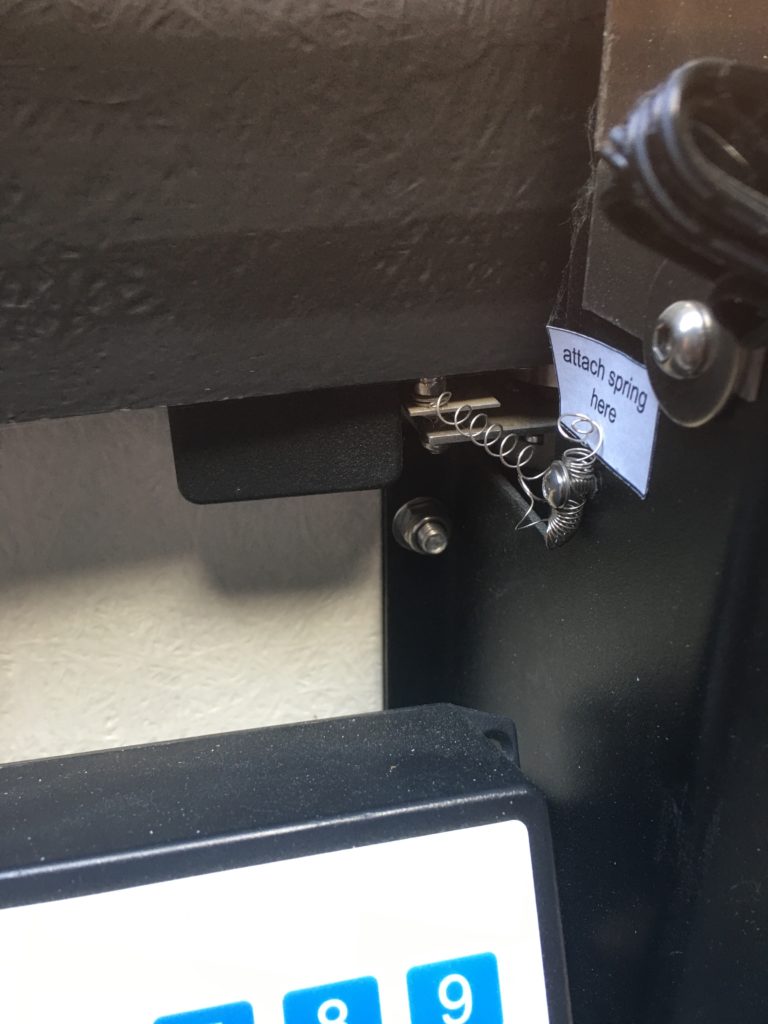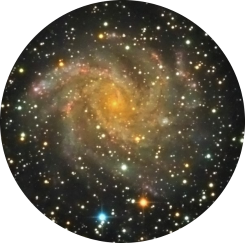Viewing time period – 20:59 – 23:42
Here is my workflow so I can repeat each night until this is finished.
Open dome – done
cool down – done
turn off dehumidifier – done
turn off fans on scope – done
find home – not needed
focus – done 59,659 clear – done
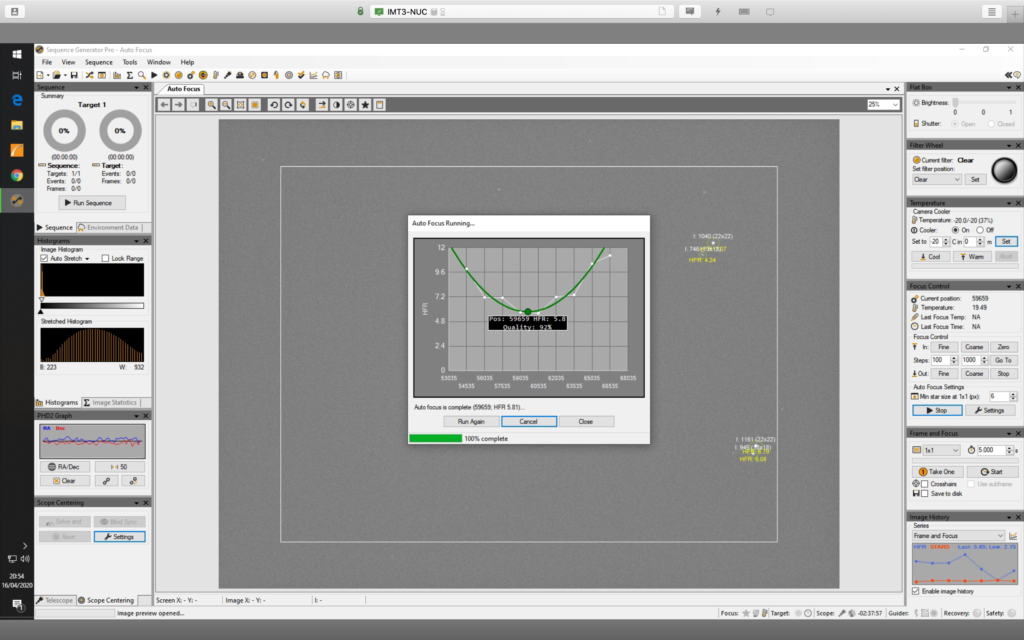
slew and sync to nearby star – done at 21:06 as not dark enough before then
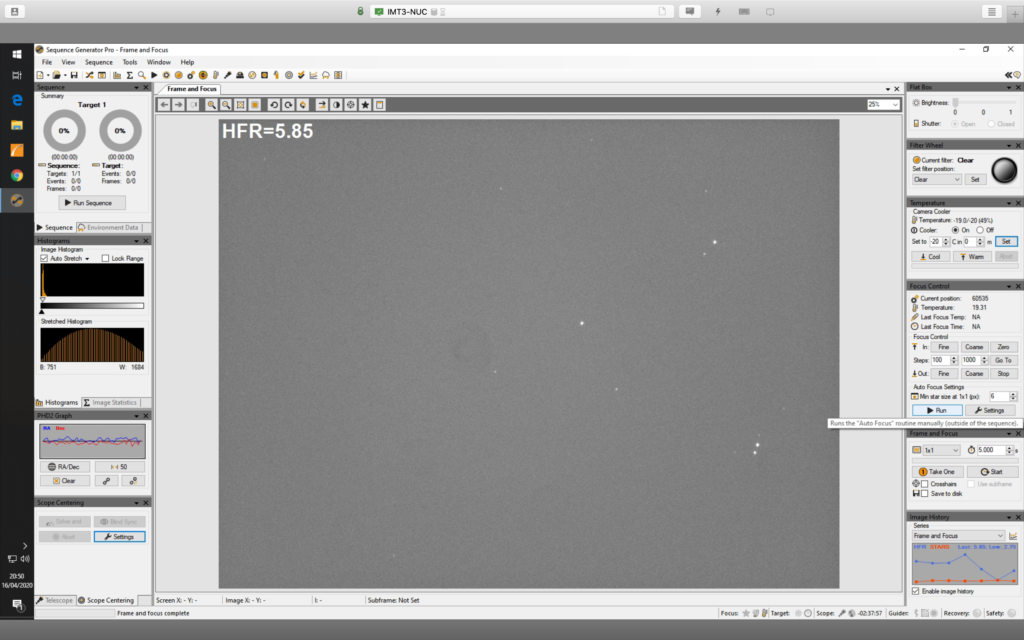
make sure scale is correct -done
make sure image link to all sky database is selected – done
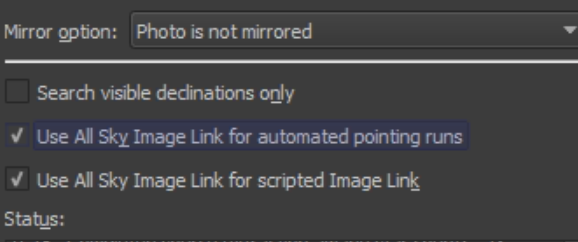
start TPoint run at point 93 – done @ 21:10
Complete TPoint – 231 points done at 23:46 including checking 5min unguided exposure which was fine
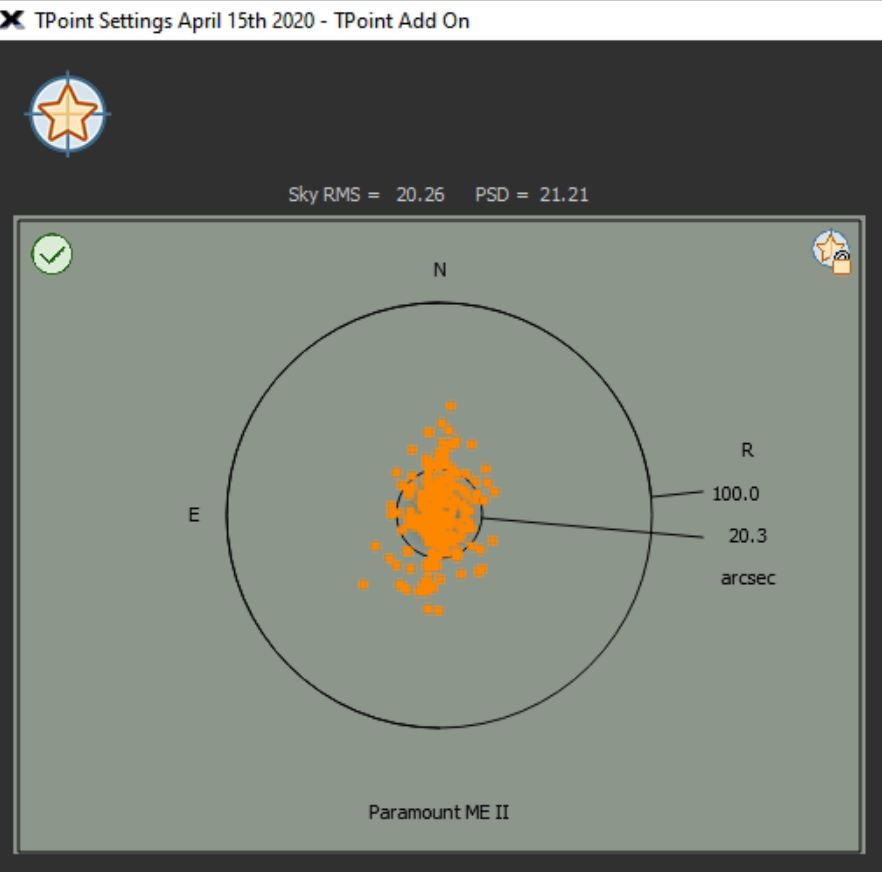
Turn on Dehumidifer – done
So what did I learn tonight? It was worth doing the TPoint model. The resulting pointing accuracy is much better with objects being almost centre off the chip. Unguided images on the 12″ look good at 5mins, I will try longer when the clouds and rain disappear. That following a documented approach helps as above. The adjustments to the worm and the loose weight helped. That fixing the dome rotation slippage on the encoder today helped.
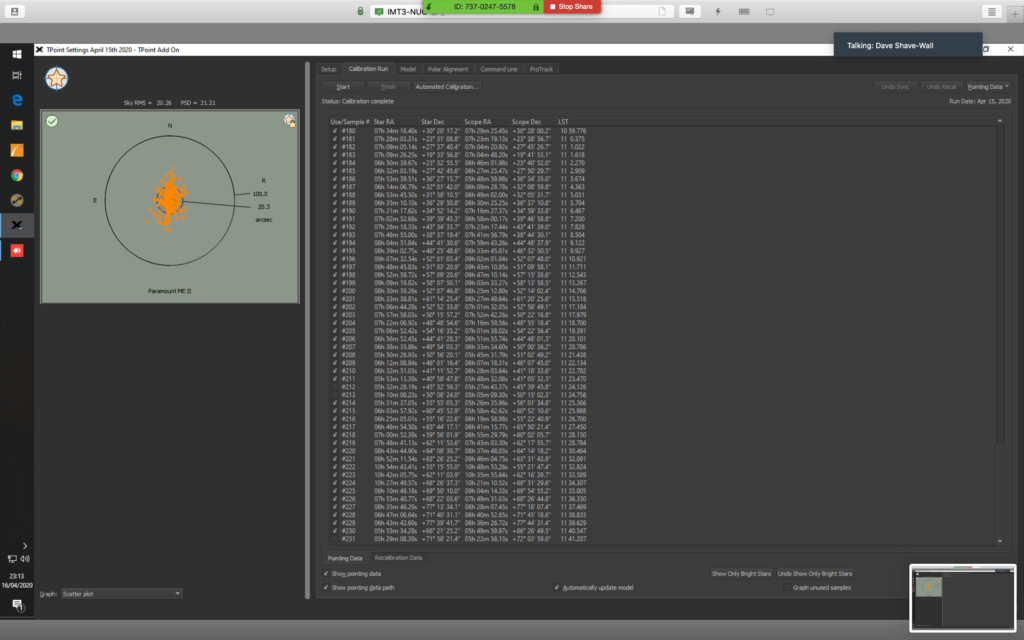
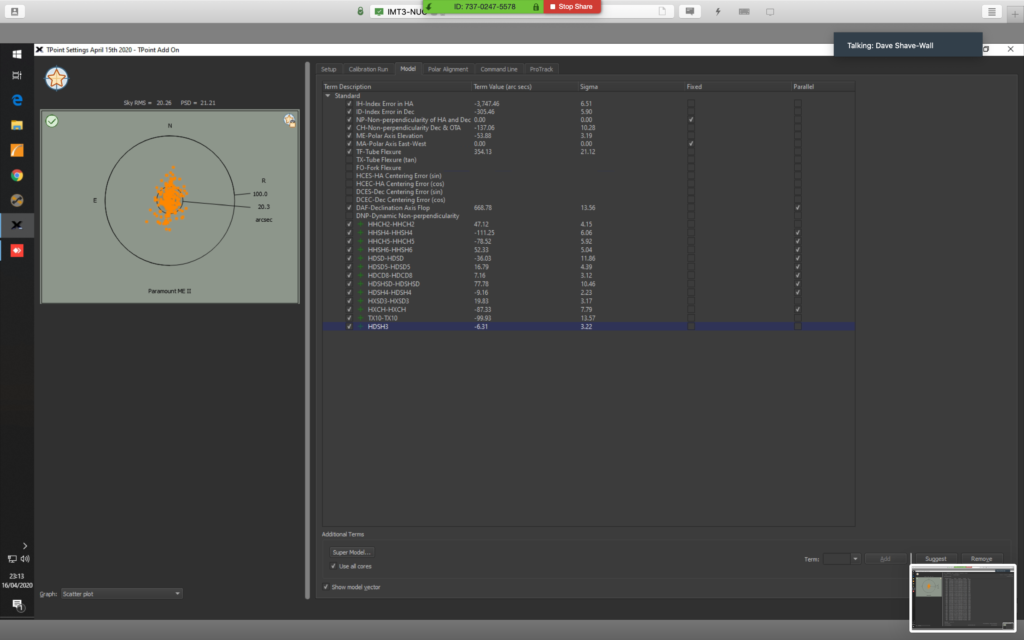
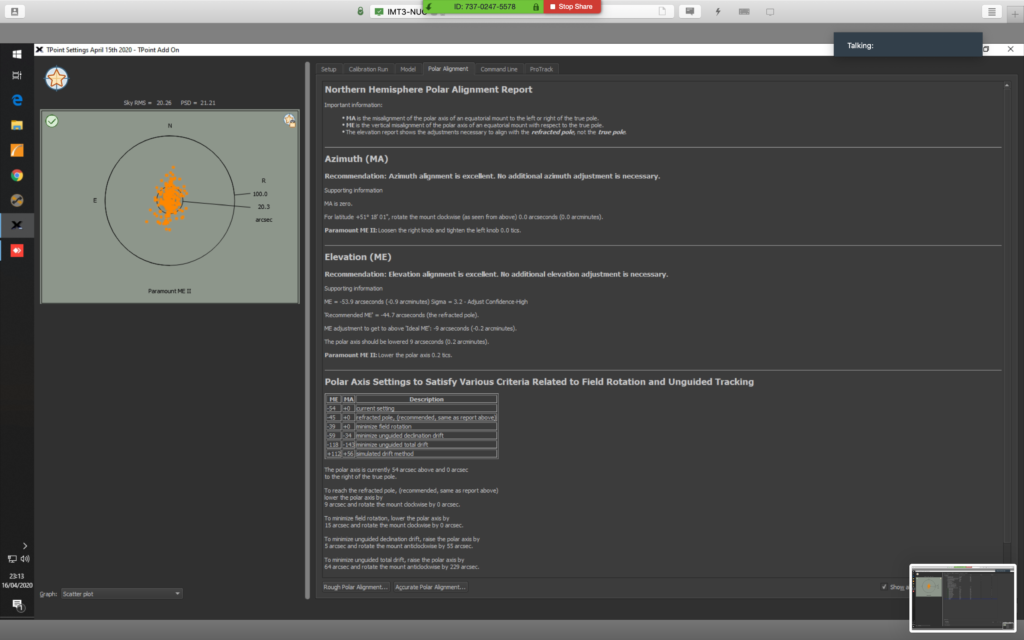
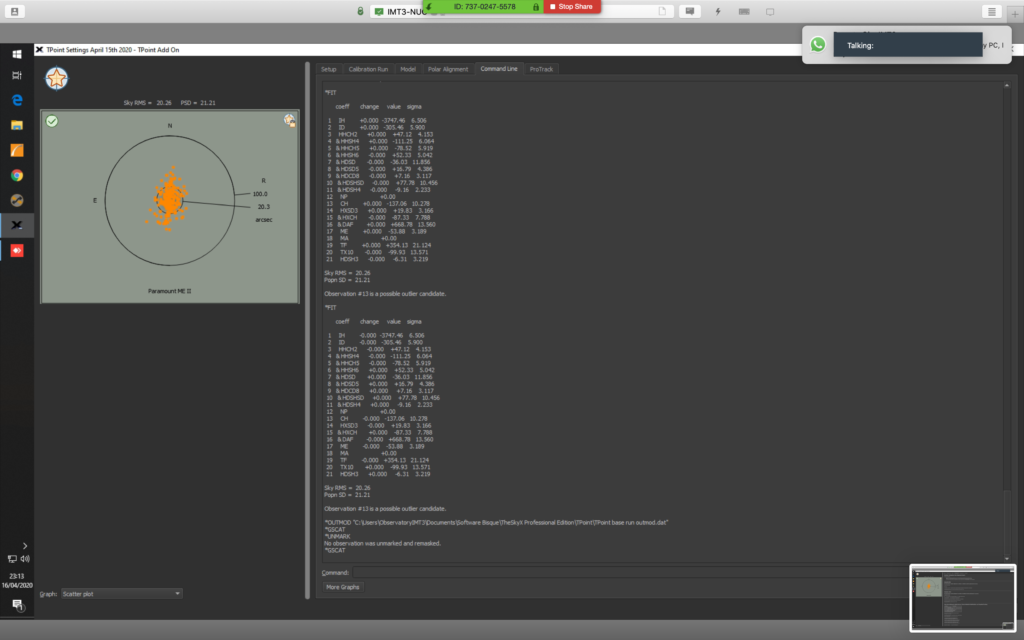
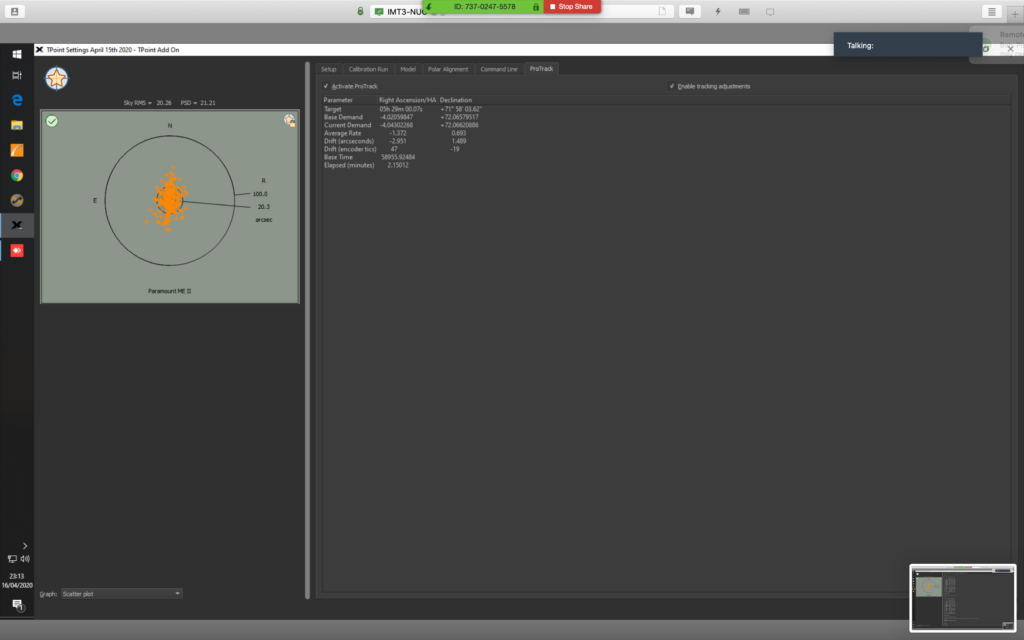
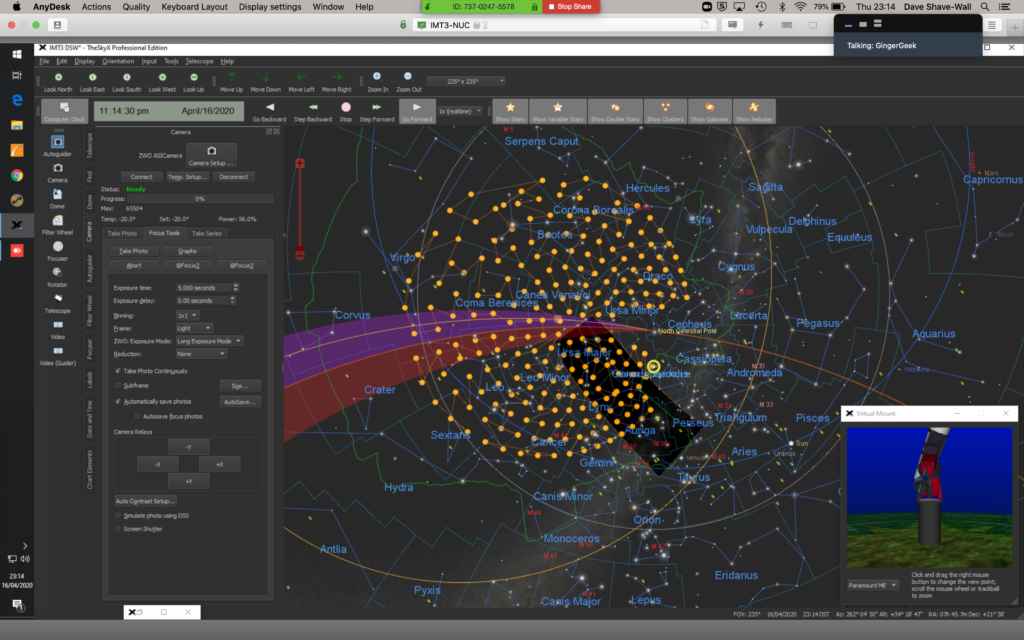
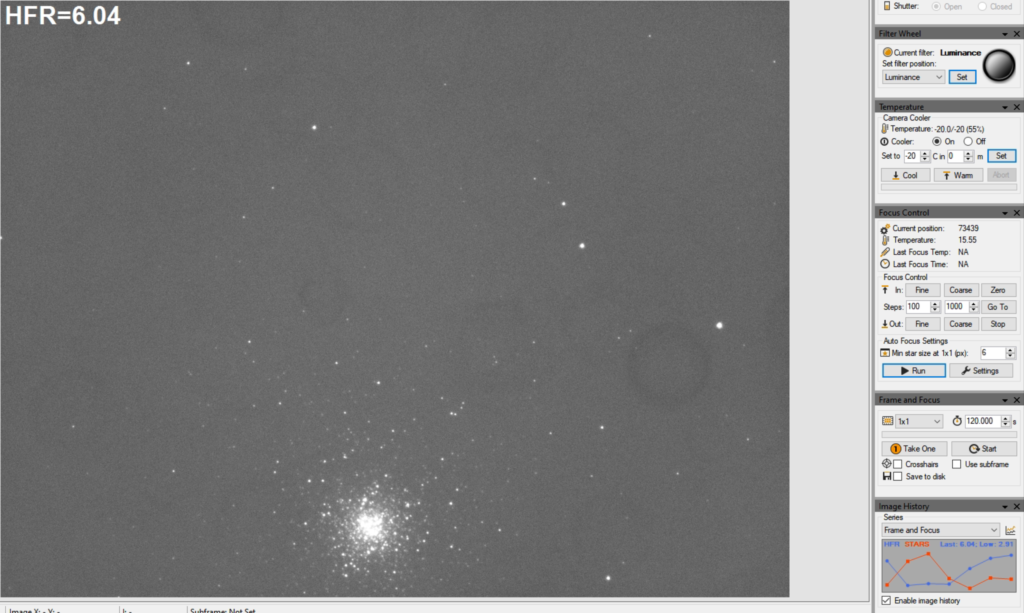
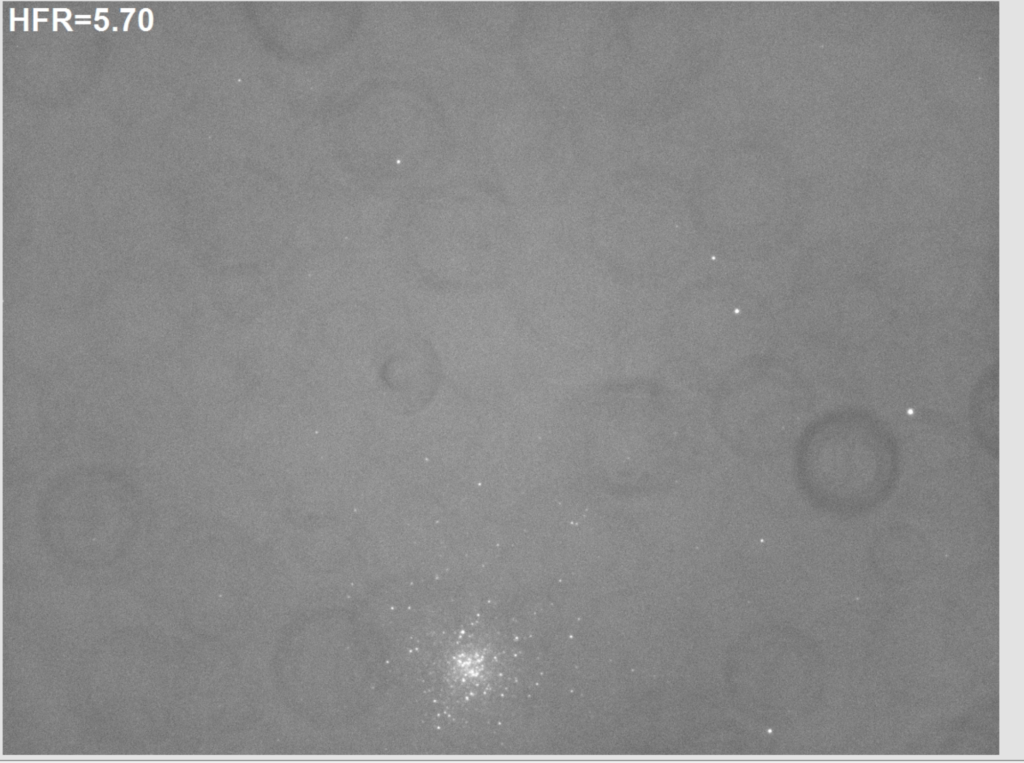
I mentioned above the dome slipping on the encoder, this was because of the small weak spring that is used on the dome, which is not good enough and over the past year has stretched beyond its limit. This means as the dome rotates and the dome shudders due to the joins in the dome not being flush (another issue) and thus the spring is stretched. This meant that some of the time the encoder wheel seen below was not touching the dome and therefore lost around 30-40 degrees. To rectify I have temporarily stretched and tightened the spring which we will replace later with a more suitable one.
